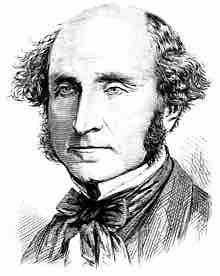Economics is a social science that assesses the relationship between the consumption and production of goods and services in an environment of finite resources. A focus of the subject is how economic agents behave or interact both individually (microeconomics) and in aggregate (macroeconomics).
Microeconomics examines the behavior individual consumers and firms within the market, including assessment of the role of preferences and constraints. Macroeconomics analyzes the entire economy and the issues affecting it. Primary focus areas are unemployment, inflation, economic growth, and monetary and fiscal policy.
The discipline of economics evolved in the mid-19th century through the combination of political economy, social science and philosophy and gained entrenchment with the increased scrutiny of the asymmetric financial and welfare distribution attributed to sovereign rule. Early writings are attributable to Jeremy Bentham, David Ricardo, John Stuart Mill and his son John Mill and are focused on human welfare and benefits rather than capitalism and free markets .

Founders of Economics
John Stuart Mill, along with David Ricardo, Jeremy Bentham and other political and social philosophers of the mid-nineteenth century are credited with the founding of the social-political theory that has evolved to be the discipline of economics.
As in other social sciences, economics does incorporate mathematics in the theoretical and analytics framework of the discipline. Formal economic modeling began in the 19th century with the use of differential calculus to represent and explain economic behavior, such as utility maximization, an early economic application of mathematical optimization in microeconomics. Economics utilizes mathematics to assess the relationships between economic actors in environments in which resources are finite.
The use of mathematics in economics increased the quantitative analysis inherent in the discipline; however, given the discipline's essentially social science roots, many economists from John Maynard Keynes to Robert Heilbroner and others criticized the broad use of mathematical models for human behavior, arguing that some human choices can not be modeled or evaluated in a mathematical equation.
Economic theory and analysis may be applied throughout society, including business, finance, health care, and government. The underlying components of economic theory can also be applied to variety of other subjects, such as crime, education, the family, law, politics, religion, social institutions, war, and science.